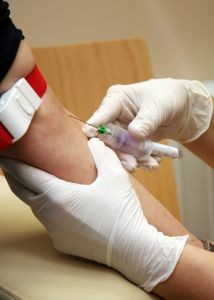A recent feature from CBS News examined whether Johnson & Johnson and Bayer, the makers of Xarelto, knowingly withheld certain important data for a letter to be published in the New England Journal of Medicine.
 The specific claim made by lawyers for Xarelto plaintiffs in the multi-district litigation (MDL) class action lawsuit is that the defendants purposely withheld information from results published involving a Duke University analysis of drug trial results. This information relates to a blood testing device that was not functioning property. The device was being used to test patients who were on Warfarin (Coumadin), which is the traditional alternative to Xarelto.
The specific claim made by lawyers for Xarelto plaintiffs in the multi-district litigation (MDL) class action lawsuit is that the defendants purposely withheld information from results published involving a Duke University analysis of drug trial results. This information relates to a blood testing device that was not functioning property. The device was being used to test patients who were on Warfarin (Coumadin), which is the traditional alternative to Xarelto.
Warfarin has been used for years as the medication of choice to treat patients with a serious medical condition known as atrial fibrillation (Afib). Afib is a medical condition that involves a specific type of irregular heartbeat that is not associated with a heart valve defect. If Afib patients do not take a blood thinner or anti-clotting agent, then the patient can develop a serious blood clotting disorder. One type of clotting disorder is known as deep vein thrombosis or DVT. DVT involves the formation of a large blood clot deep within the veins of the legs. One of these clots can break loose and travel through the circulatory system and into the lungs, where it can actually create a hole causing a serious internal bleeding disorder that often results in death. The clots can also block the flow of blood to the brain, causing a stroke.
There is no question that Afib patients need some type of blood thinner or anti-clotting agent in most cases, but for many years, that medication was Warfarin. There is also no question that Warfarin is very effective and can be safe, but it is not all that convenient for patients. The reason for this is that patients must get frequent blood tests, so their doctors can make sure the dosage is correct. If the dosage is not correct, it can result in a serious bleeding disorder. Patients must also watch what they eat, because foods with high amounts of vitamin K, like kale, can cause the dosage to be off.
This is where Xarelto was able to come onto the market, along with Pradaxa, Savaysa and Eliquis, and claim it is equally as effective as Warfarin and does not need patients to constantly monitor their dosage. However, there is a serious risk that patients may, without warning, develop a serious internal bleeding disorder, and, unlike with Warfarin, there is no reversal agent (antidote) approved to treat Xarelto bleeding disorders.
The basis of this lawsuit is that the company allowed the use of a faulty blood testing machine to underreport the number of bleeding-relating adverse events as compared to Warfarin in head to head trials, so they could claim there is no more of a risk with their new drug than there had been with the drug already on the market. However, as our Xarelto injury lawyers have seen in multiple cases, the real risks were not properly communicated to doctors and patients.
Call the Boston Jeffrey Glassman Injury Lawyers for a free and confidential appointment — (617) 777-7777.
Additional Resources:
Did heart drug makers withhold data from leading medical journal?, March 2, 2016, CBS News, By Mary Brophy Marcus
More Blog Entries:
FDA Announces Testosterone Meds Must Carry Broader Warning, July 7, 2014, Boston Products Liability Lawyers Blog
 Product Liability Lawyer Blog
Product Liability Lawyer Blog

